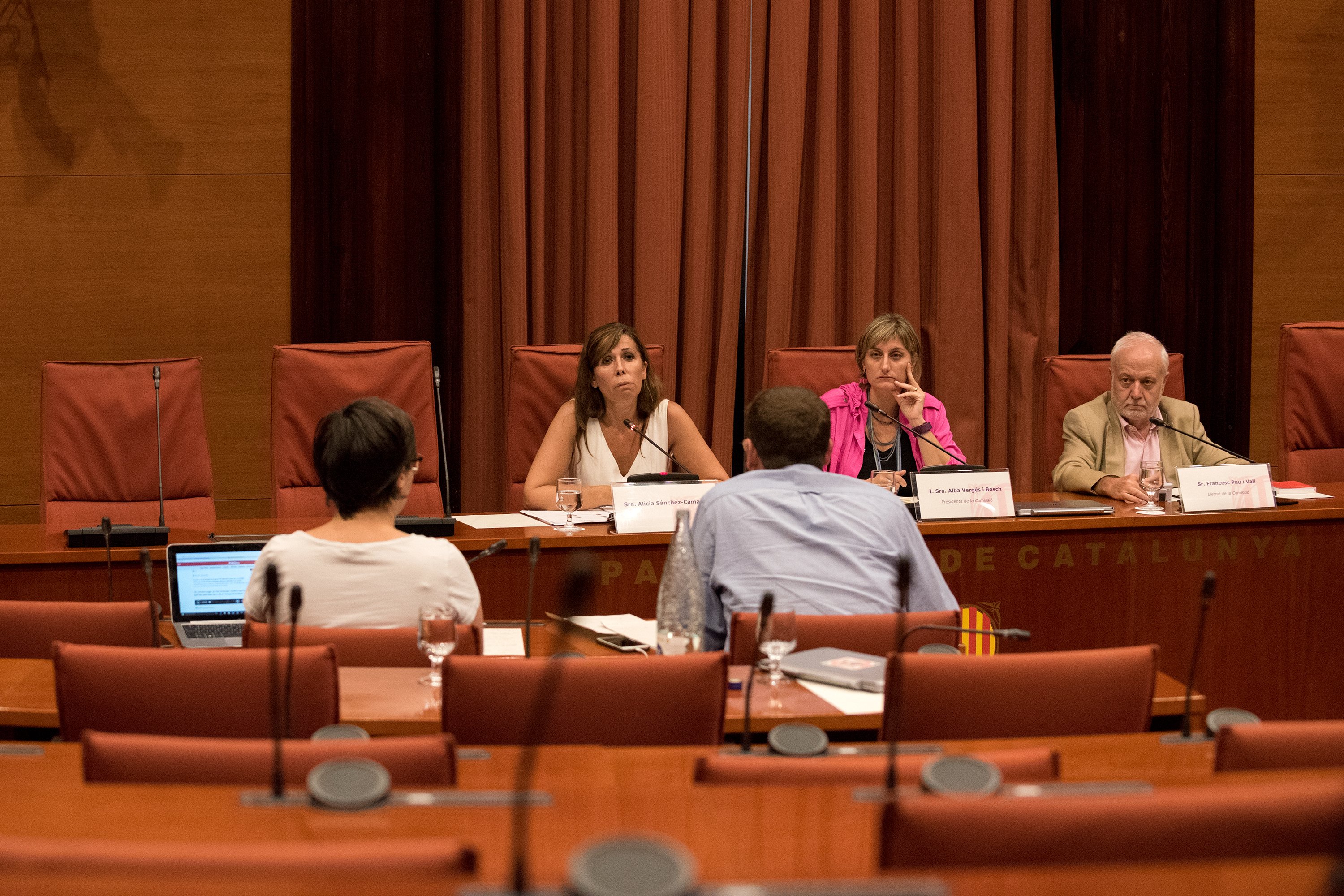Junts pel Sí (Together for Yes), CSQP (Catalonia Yes We Can) and the CUP (Popular Unity Candidacy) have jointly asked for the resignation of the Spanish prime minister, Mariano Rajoy, as well as that of the vice-president, Soraya Saénz de Santamaría, and all the members of the Spanish government that had knowledge about the existence of the "Operation Catalonia", the alleged plot run by the Spanish state to smear the Catalan independence movement.
After more than three months, the Investigative Commission about Operation Catalonia has finished its work this Tuesday with the unanimous approval of the conclusions of Junts pel Sí, CSQP and the CUP. The conclusions recognise the existence of Operation Catalonia hold directly responsible the former Spanish Interior minister Jorge Fernández Díaz who they say "acted with the knowledge and approval of the Spanish prime minister and the connivance of other members of the Government like the vice-president and the head of the Cabinet of presidency, Jorge Moragas".
For this reason, the commission has asked for the assumption of political responsibility by and the resignations of all members of the Spanish government that had knowledge of the plot. "It is improper that Jorge Fernández Díaz continues to work as a deputy in the Congress", said Junts pel Sí deputy Lluís Guinó, who also highlighted the role of the ex-president of the Catalan PP (Popular Party), Alícia Sánchez-Camacho, in the operation.
The conclusions, in the Public Prosecutor's Office
Besides the political responsibility, the parties have also agreed to present the commission's conclusions to the Public Prosecutor's Office. "Operation Catalonia was a criminal action that deserves the consideration of the Public Prosecutor's Office and we will study thoroughly the lodging of complaints," said Guinó. CSQP and the CUP have also agreed on the need to present the conclusions to the courts, since they believe that they show a "clear breach of the principles of democracy", in the words of CUP deputy Mireia Boya.
At the same time, the Catalan Parliament will also file complaints against all those who, despite having been summoned to testify, did not appear before the Catalan chamber. "We defend the taking of legal-penal actions against all those who haven't heeded the requirement to come and testify," said Guinó. The deputies believe that it was "scorn" for the Parliament, according to the commission's president, Alba Vergés, and have noted that this is regulated by the Penal Code.
Debate in the Parliament
In any case, the conclusions of the Operation Catalonia Commission will be voted on next week during the plenary assembly on 6th and 7th September. "In the next plenary assembly, the parties that want to turn a blind eye will have to see us and listen to us", said CSQP deputy Albano-Dante Fachin in reference to the absence of Ciutadans (Citizens), PSC (Socialists’ Party of Catalonia) and the Catalan PP (Popular Party) during the commission's working sessions.
Fachin also wanted to make a clarification about the conclusions. "We cannot use the clear evidence of this dirty war as an apology for corruption that has also taken place in Catalonia", in reference to the implication of the old Convergència (Convergence) party in the 3% (kickbacks for public works contracts) and Palau (embezzlement) affairs. As an example, Fachin chose the former mayor of Barcelona, Xavier Trias, who he described as being responsible for "a failed health system, a nest of corruption and lack of transparency" but whom he recognised as a victim of Operation Catalonia. "With all clarity we will say that it's intolerable the attack that he suffered from the cesspit of the [Spanish] state," he concluded.

